ZimmCast 723 – 2023 Events Compilation
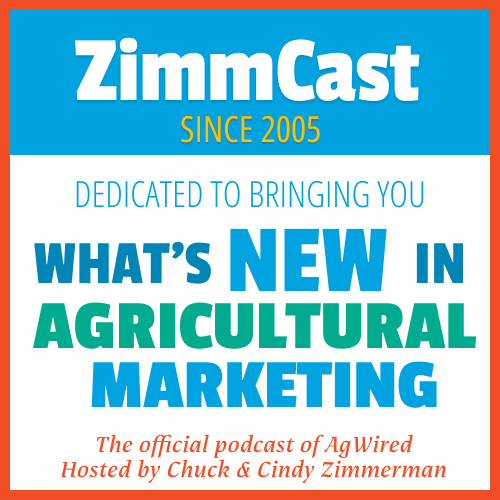 Hello and welcome to the ZimmCast.
Hello and welcome to the ZimmCast.
As we come to the end of 2023, we already have dates on the calendar going into the new year for about the same events we did this year, most of which we have been doing for about 15 years. From Beltwide Cotton Conferences right after new years to the American Seed Trade association Field Crops seed convention, we stayed busy all year. Here is a compilation of interviews from 2023.
And that will wrap it up for 2023 – see you somewhere on the agriblogging highway in 2024.
Listen to the episode here:ZimmCast 723 - 2023 Events Compilation (47:16)
That’s the ZimmCast for this week. I hope you enjoyed it and thank you for listening.
Subscribe to the ZimmCast in:
Quality Roasting Announces New CEO
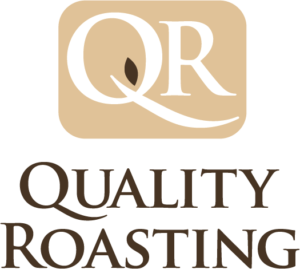 Wisconsin-based soybean meal and oil manufacturer Quality Roasting has appointed Erin Davis to be the company’s new Chief Executive Officer (CEO), effective January 1, 2024.
Wisconsin-based soybean meal and oil manufacturer Quality Roasting has appointed Erin Davis to be the company’s new Chief Executive Officer (CEO), effective January 1, 2024.
Davis has been instrumental in leading the growth of the company since she joined Quality Roasting in 2016. With two soy processing plants in Wisconsin, Davis led the expansion of Quality Roasting’s footprint with the addition of a third plant in Reese, Michigan in 2019. She also led the design and commissioning of a state-of-the-art food-grade oil refinery in Valders, WI in 2018, and is overseeing the construction of a new refinery currently being constructed in Reese, MI. The company is also adding a third Wisconsin soy processing plant in Reedsville, WI, which is planned to be in full operation before Spring 2024.
 “With her proven track record of effective decision-making, strategic planning and fostering collaboration among team members, we have complete confidence that Erin will build on our current successes and drive the company forward”, said Owners and Board of Directors of the company, including Mike Herzog-President, Jim Fitzgerald-Vice President, Scott Rabe-Treasurer, and Dr. Lynn Davis-Secretary.
“With her proven track record of effective decision-making, strategic planning and fostering collaboration among team members, we have complete confidence that Erin will build on our current successes and drive the company forward”, said Owners and Board of Directors of the company, including Mike Herzog-President, Jim Fitzgerald-Vice President, Scott Rabe-Treasurer, and Dr. Lynn Davis-Secretary.
Davis is the daughter of Dr. Lynn Davis, and she is excited to take on this new role as a second-generation family member. She shared, “I could not be more thrilled to take on the honor of being Quality Roasting’s CEO. Quality Roasting has proven to add value to our local soybean farmers and be the choice supplier of soybean products to both the feed and food industries. With the support of our dedicated team, I look forward to utilizing our past success to continue the company’s growth.”
Scott Rabe, current CEO and one of four owners of the company, has been the core of Quality Roasting’s operations since its early beginnings in 1991 and has played a pivotal role in the company’s success. Rabe will maintain his ownership in the company and will transition into a role as Executive Advisor and Director of Grain Merchandising where he will utilize his wealth of experience and passion as the cornerstone of Quality Roasting’s partnership with our suppliers.
Tackling the Podcast Download Numbers Challenge
“There are three types of lies — lies, damn lies, and statistics.”
― Benjamin Disraeli
Providing audience numbers for media has never been an easy task, but when it comes to online metrics, it is a challenge that has been getting increasingly difficult. Let’s just look at podcasting, which has skyrocketed in popularity since we first started doing it in 2005.
When we first started ZimmCast in 2005, there were no podcast hosting services, so we had to host it on our own server and get statistics by manually putting our codes into a tracking system. Eventually, we moved to Libsyn about ten years ago. Using Libsyn provides hosting of the audio files which is good for our own server storage and they provided more information about the podcast episodes than we were getting. They provided not only download numbers, but also geographic data and more.
A few years ago Libsyn started tracking two different sets of numbers for podcasts – Unique and IAB, with IAB being Internet Advertising Bureau Podcast Measurement Compliance Guidelines. The difference between the two metrics was generally pretty significant in our case, with the unique being by far the largest of the two numbers. The difference could be in the thousands.
As far as IAB is concerned, they work for the advertisers who want to make sure they are getting a true measure of the audience for a podcast they might want to sponsor. So they filter out any suspicious IP addresses that might be linked to bots or web crawlers and essentially report almost exclusively downloads tied to subscriber apps like Apple Podcasts. In our case, most of our podcasts are downloaded via a url on a web page, social media post or email, so we can have very high unique numbers.
But IAB has started cracking down on reported podcast download statistics and in October Libsyn made a major reporting change that resulted in the Unique numbers suddenly dropping to mirror the IAB numbers within a few downloads. An audio file that would have had 1000 unique downloads in September may now only get about 100!
Why were the Unique downloads so high before and now almost the same as the IAB numbers? Were they ever accurate in the first place and are they now? How do we know and how do we explain it to our clients?
I have been back and forth with Libsyn technical support and management and discussed it with other podcast producers and providers – what do you think?
Precision Ag News 12/21
DWFI Podcast 31 – Agriculture in Space
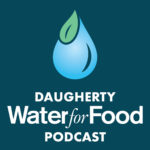 Yufeng Ge, Santosh Pitla and David Jones have already conducted research in the areas of ag-relevant sensors for more efficient application of fertilizer and water, and the development of an autonomous planter capable of seeding a 5-acre field all on its own. But now they’ve set their sights quite a bit higher — growing food in space. The three biological systems engineering faculty at the University of Nebraska–Lincoln, along with others on their research team, were awarded a two-year Grand Challenge grant from Nebraska’s Office of Research and Economic Development to find ways to sustainably grow food in space.
Yufeng Ge, Santosh Pitla and David Jones have already conducted research in the areas of ag-relevant sensors for more efficient application of fertilizer and water, and the development of an autonomous planter capable of seeding a 5-acre field all on its own. But now they’ve set their sights quite a bit higher — growing food in space. The three biological systems engineering faculty at the University of Nebraska–Lincoln, along with others on their research team, were awarded a two-year Grand Challenge grant from Nebraska’s Office of Research and Economic Development to find ways to sustainably grow food in space.
In this episode, Frances Hayes, DWFI director of communications and public relations, sits down with Yufeng, Santosh and David as they explore their short-term goal of developing a center dedicated to studying space agriculture and their long-term goals of actually growing enough food on space to sustain people while translating the lessons learned to agriculture here on Earth.
Listen here or subscribe on your favorite podcast platform:
DWFI Podcast 31 - Agriculture in Space 33:49
The Robert B. Daugherty Water for Food Global Institute (DWFI) at the University of Nebraska was founded with the mission to have a lasting and significant impact on achieving more food security with less pressure on scarce water resources by conducting scientific and policy research, using the research results to inform policy makers, and sharing knowledge through education and communication.
How to subscribe:
Animal Ag News 12/18
ASTA FCSC Farm Bill Session
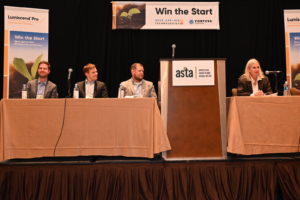 As most of agriculture knows, Congress agreed last month to an extension of the current farm bill to avoid a lapse in funding for critical agricultural programs and provide certainty to producers, but when a new farm bill will be crafted remains uncertain.
As most of agriculture knows, Congress agreed last month to an extension of the current farm bill to avoid a lapse in funding for critical agricultural programs and provide certainty to producers, but when a new farm bill will be crafted remains uncertain.
At the recent American Seed Trade Association Field Crop Seed Convention, Syngenta’s Mary Kay Thatcher moderated a panel on the farm bill future, which included Andrew Walmsley, Florida Farm Bureau Federation; Brian Glenn, CropLife America; and Samuel Crowell, American Seed Trade Association. Each discussed the impact of the extension on farm programs important to their members and what the options are for getting a new farm bill.
Listen to their discussion.
ASTA FCSC Farm Bill Session 1:11:08
Industry Ag News 12/15
Ethanol Industry Pleased with SAF Guidance
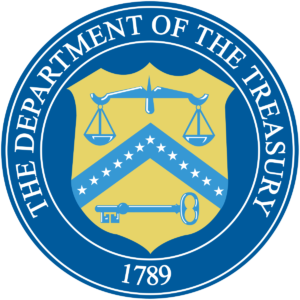 The U.S. Department of the Treasury and Internal Revenue Service (IRS) today released guidance on the Sustainable Aviation Fuel (SAF) Credit established by the Inflation Reduction Act (IRA).
The U.S. Department of the Treasury and Internal Revenue Service (IRS) today released guidance on the Sustainable Aviation Fuel (SAF) Credit established by the Inflation Reduction Act (IRA).
Under the guidance issued today, numerous fuels will qualify for the credit, including valid biomass-based diesel, advanced biofuels, cellulosic biofuel, or cellulosic diesel that have been approved by EPA under the Renewable Fuel Standard (RFS).
Fuels that achieve a 50% or greater reduction in lifecycle greenhouse gas emissions under the most recent Carbon Offsetting and Reduction Scheme for International Aviation (CORSIA) standard will continue to qualify under today’s guidance. In addition, EPA, DOT, USDA, and DOE are announcing their commitment to release an updated version of DOE’s GREET model by March 1, 2024. Pending further guidance from the Treasury Department, the updated GREET model will provide another methodology for SAF producers to determine the lifecycle GHG emissions rates of their production for the purposes of qualifying for the SAF Credit for SAF sold or used during calendar years 2023 and 2024.
Reacting to the announcement, Renewable Fuels Association President and CEO Geoff Cooper said, “While there are important carbon modeling updates and details that still need to be worked out, we are cautiously optimistic that today’s guidance could open the door to an enormous opportunity for America’s farmers, ethanol producers and airlines. The Biden administration is recognizing that the best way to meet ambitious SAF targets is to maximize marketplace flexibility, make use of existing low-carbon fuel assets, and stimulate innovation and competition across the entire supply chain.”
Cooper discusses the guidance in this interview:
RFA CEO Geoff Cooper interview (5:53)




